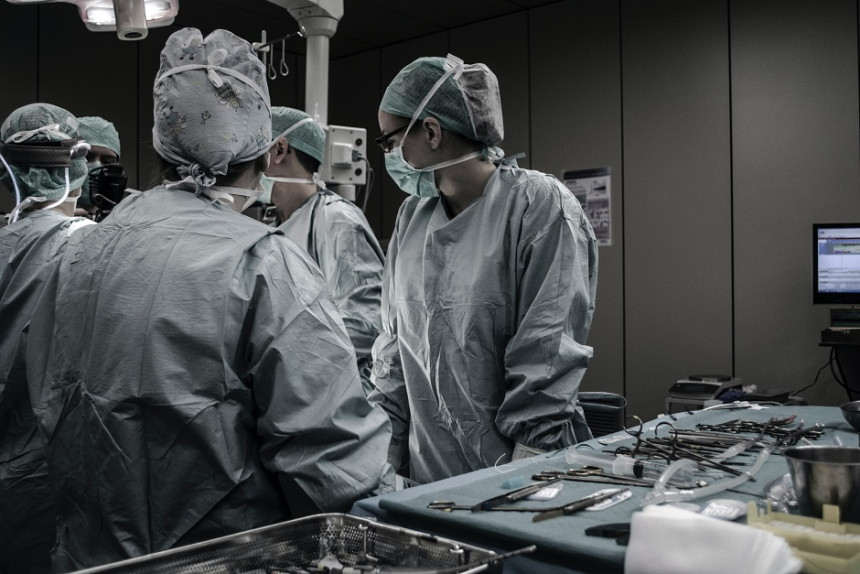Pancreatic cancer is a formidable adversary, known for its late-stage diagnosis and high mortality rate. Detecting pancreatic cancer in its early stages can be challenging, as symptoms often go unnoticed until the disease has progressed. This article will explore the pancreatic cancer symptoms and signs, emphasising the importance of early detection and awareness. Additionally, it also delves into the available treatment options, both conventional and complementary, for managing pancreatic cancer.
Sign 1: Jaundice and Yellowing of the Skin and Eyes
One of the earliest indications of pancreatic cancer can be jaundice, a condition characterised by yellowing of the skin and the whites of the eyes. This occurs when the tumour in the pancreas obstructs the bile duct, preventing the normal flow of bile. Jaundice may also cause dark urine and pale-coloured stools.
Sign 2: Abdominal Pain and Discomfort
Persistent abdominal pain or discomfort, often located in the upper abdomen or around the back, can be an early indicator of pancreatic cancer. This pain may be mild at first but can become more intense as the tumour develops and presses against nearby organs and nerves.
Sign 3: Unexplained Weight Loss
Unexplained weight loss, often accompanied by a loss of appetite, can be a sign of various health conditions, including pancreatic cancer. The tumour can interfere with the pancreas’s ability to produce digestive enzymes, leading to malabsorption of nutrients and weight loss.
Sign 4: Changes in Digestion
Pancreatic cancer can disrupt the digestive process, causing changes in bowel habits. Individuals may experience diarrhoea, oily stools, or difficulty digesting fatty foods due to the pancreas’s reduced ability to produce enzymes.
Sign 5: New-Onset Diabetes or Worsening of Existing Diabetes
In some cases, pancreatic cancer can affect blood sugar regulation, leading to the development of diabetes or exacerbating existing diabetes. This occurs when the tumour impairs the pancreas’s ability to produce insulin and other hormones.
Sign 6: Fatigue and Weakness
As pancreatic cancer grows, it can lead to fatigue and weakness. This is often a non-specific symptom, but when coupled with other signs, it may raise concerns about underlying health issues, including cancer.
Sign 7: Blood Clots
The presence of cancer can elevate the likelihood of experiencing blood clots, a condition referred to as deep vein thrombosis (DVT). These clots can manifest as pain, swelling, and redness in the affected limb, and if a clot migrates to the lungs, it may be accompanied by shortness of breath.
Sign 8: Back Pain
Back pain, particularly in the upper abdomen or mid-back region, can be a symptom of pancreatic cancer. This pain may be persistent and may worsen when lying down or after eating.
Treatment Options for Pancreatic Cancer
When diagnosed, several pancreatic cancer treatment options may be considered, depending on the stage and extent of the disease. These treatment options may include surgery, chemotherapy, radiation therapy, targeted therapy, and immunotherapy. The choice of treatment will be made in consultation with a healthcare team, taking into account the patient’s overall health and specific circumstances.
Ayurveda for Pancreatic Cancer
In addition to conventional medical approaches, some turn to complementary therapies like ayurvedic treatment for pancreatic cancer. Ayurveda, an ancient holistic system, offers herbal remedies, dietary adjustments, yoga, and meditation. While not a substitute for conventional treatments, Ayurvedic approaches can complement overall well-being. Herbs like turmeric and ashwagandha may help reduce inflammation. Consulting a qualified Ayurvedic practitioner and informing your medical team is crucial when integrating Ayurvedic treatments into your care plan.
Conclusion
Early recognition of pancreatic cancer symptoms and signs is crucial for improved treatment outcomes. Though these symptoms may signal various health issues, their persistence or combination should prompt medical evaluation. Timely detection, intervention, and holistic care significantly impact the prognosis and quality of life for those facing pancreatic cancer. Increasing awareness about these early signs is vital in combating this challenging disease.




